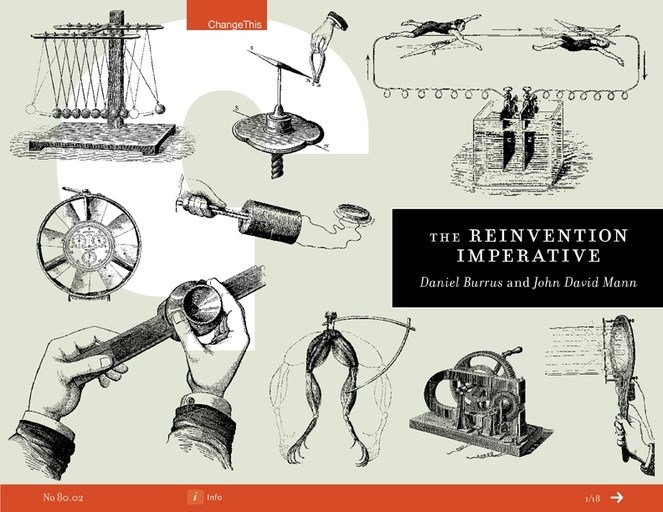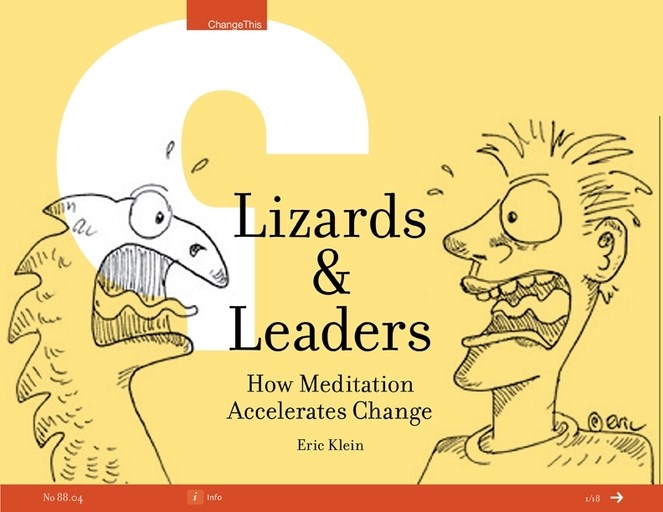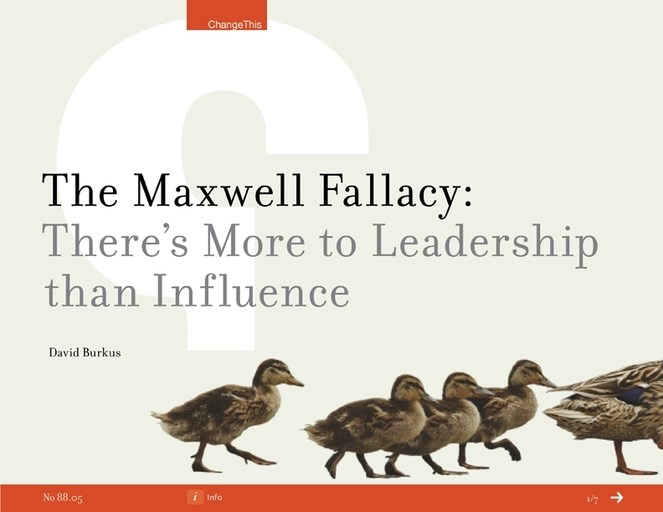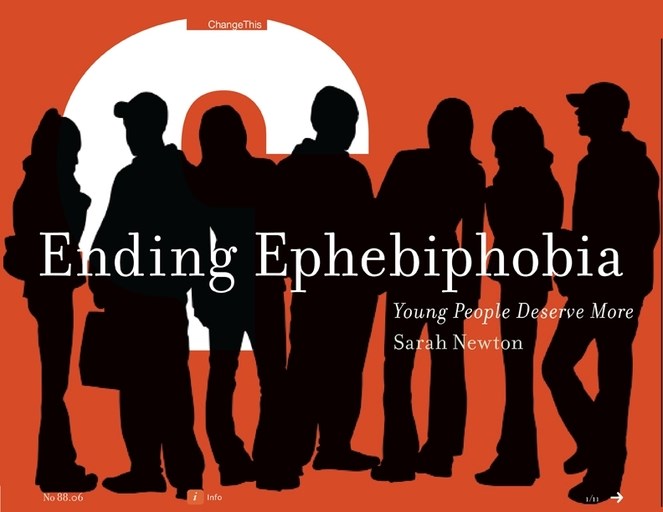ChangeThis RSS
"Many will agree that a system of incentives is, and has been, the backbone of the success of the capitalist economic system. That over centuries, a network of incentives has driven innovation, which in turn has encouraged the inventiveness that has led to the unparalleled generation of ideas, goods, and services across America and the industrialized West.
[...]
Given the evidence and importance of positive incentives, why, over the past 50 years, have policymakers embarked on a systematic and deliberate strategy of putting in place a catalogue of policies that dis-incentivise citizens from acting in a manner that could be beneficial to their economies, and the world at large?"
Continue reading
"In the good old twentieth century, you could reinvent your company, product category or industry once, and then go for a decade before doing anything especially innovative again. That doesn't work anymore. The world has changed, and more importantly, change itself has changed.
[...]
In the past, stability and change were two contrasting states: when you achieved stability, you did so despite change. Today change itself has become an integral part of stability: today you can achieve stability only by embracing change as a continuous and permanent state.
It used to be, you could find something you do well, learn how to do it, and just keep on doing it. Not anymore.
In the past, reinvention was an option. Today it is an imperative."
Continue reading
"The goal is to cross your learning edge. [...] To do this you have to let go of the structures, beliefs, and habits that constituted your old sense of self–without losing awareness. It takes a resilient awareness to remain at your learning edge without being overtaken by the inner lizard.
It takes a form of awareness that sustains itself even as the structures of your old self are let go. But, how can you let go of beliefs, attitudes, strategies, and self-images and still be aware? Even more to the point, what is left to be aware when all those mental and emotional supports are withdrawn? To discover this takes a special kind of practice. [...]
The good news is that this specific kind of practice has been developed and refined for thousands of years by researchers and practitioners around the world.
I'm referring to the practice of meditation. Meditation practice develops your inner capacity to remain aware when the conventional supports of position, title, beliefs, attitudes, and self-image are let go. How does meditation do this? By cultivating a specific type of attention known in traditional literature as witness consciousness or the inner observer (in contrast to the inner lizard)."
Continue reading
"John Maxwell, billed often as America's foremost authority on leadership, has made his career around the phrase: 'Leadership is influence; nothing more, nothing less.' This is the key phrase has guided the writing of the most prolific leadership author in America and influences the work of countless others. As a result it is perhaps the commonly accepted definition of leadership.
It's brief. It's pithy. It's wrong."
Continue reading
"The stereotypes of young people and the irrational fear we have of them have no place in modern society.
Pliny the Elder was on to something when he said, "What we do to our children, they will do to society." If his words are to ring true, then we are in for a whole lot of trouble.
If we don't counter this trend, our young people will increasingly lack the emotional resilience and social competence that is needed to make society a safe, fair and happy place. What we need is a model for empathetic behavior when it comes to dealing with young people. A model that every adult can apply in every situation—be they a parent, an employer, a schoolteacher or a concerned citizen.
Isn't it about time that, as a society, we stopped crushing the spirits of the next generation and started to understand their situations, feelings and motives and in turn change our own feelings, thoughts and attitude towards young people?"
Continue reading










